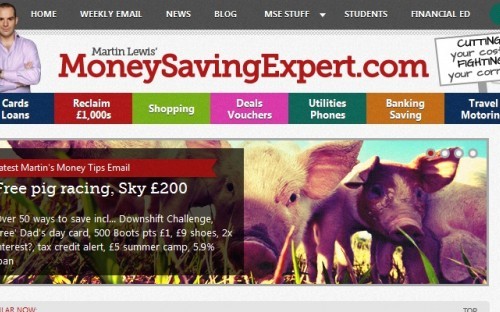We all know about cultural stereotypes in Europe. which British traits are admired and have the potential to penetrate foreign markets?
If we think of Germany for example, we think of a leading manufacturing nation with household names like Mercedes, Siemens and Volkswagen. France is big in many sectors from nuclear energy to luxury goods, and of course wine and cheese.
But which British traits are admired and have the potential to penetrate foreign markets?
Britain has, since Thatcher, distanced itself from manufacturing and put a greater emphasis on the services and finance industry. London, specifically the City, attracts the biggest players in the sector and is seen as the financial capital of Europe, if not the world.
How can British firms make use of this know-how and monetize it online? I see a great opportunity for sites like Which?, Greasy Palm and MoneySupermarket entering new markets if they maintain the quality of service and localise their offering. The opportunity for widgets that pull information into third party sites and handheld devices, is huge.
It’s not only the existing firms that can take these services abroad. Entrepreneurs with the ability to create quality sites and work with a local team to adapt the services can do just as well. English is nearly always the second language in continental Europe so finding a bilingual team to run the service should not be difficult. So if you see an online business that works in the UK, be bold and have a shot at growing a version of it in Europe!
Britain has a common language and close cultural ties to America. As a result it’s often hard for British sites to compete, as many users do not mind opting for the US version.
There’s an opportunity here as well, however. If it’s possible for Brits to pick up on trends from the US earlier, executing them in Europe should be easier for them than for Americans and faster than for most Europeans.
Many of the viral movements in Facebook were copied in non-English speaking countries much later. Music, games and film are also often only released much later in Europe, and there are opportunities in licensing and in e-commerce sites selling fan merchandise. A Berlin techie secured the German rights to the movie The Artist early on and made a small fortune.
British humour is huge in Europe. The is a classic British parody called Dinner for One enjoys cult status in Germany and is shown every Christmas Eve. I have the impression it is far more famous in Germany than in Britain! If British humour is already so popular, why not make use of it yourself and transfer the wit to digital products to amuse people like e-cards or printed t-shirts?
You see a lot of people walking around wearing t-shirts with classic quotes from Hollywood movies, apparel that refernces popular British shows could be just as popular. I would use white label services like Vista Print to test and minimize risks before scaling.
Many more foreign students are studying at UK Universities, and some even went to school in the UK before entering university . High quality information on studying in the UK, catering to people from specific countries could be a service customers would pay a lot for.
There are services out there but they do not offer the community feel that parents and students want. For example, the University of London offers online courses and networking tools to enable its students to interact as a community. But the social element isn’t great. A Facebook app to host students from British Universities in their own micro-site within Facebook would be great.
It’s also during their studies that many students develop preferences for elements of British culture or products clothing, food and entertainment that are hard to get abroad. UK entrepreneurs should build ties with foreign students to supply them in their local markets when they’re back home – a niche area of e-commerce with a worldwide customer base, thanks to the diversity on British university campuses.
Interested in how Facebook got started? Check out our interview with Divya Narendra, one of the site's original founders
RECAPTHA :
1f
7e
a5
66







